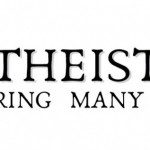 Rhyd Wildermuth had a thought-provoking essay on Saturday’s Wild Hunt titled “Alchemical Capitalism.” It explores the issue of usury and the dark magic within capitalism.
Rhyd Wildermuth had a thought-provoking essay on Saturday’s Wild Hunt titled “Alchemical Capitalism.” It explores the issue of usury and the dark magic within capitalism.
Rhyd writes from the perspective of an anarchist and a Marxist. I know virtually nothing about Marx beyond a few famous quotes and the fact that the large-scale efforts to implement his theories were disastrous failures (which does not necessarily mean those theories were wrong – doesn’t mean they were right, either). I do, however, know a thing or two about capitalism, from fifty years of living in a capitalist culture, thirty years of working in corporate settings, and four years earning a degree in advanced capitalism (otherwise known as an MBA).
I’m not going to critique Rhyd’s essay so much as state my own thoughts, which are centered around one thing: the core problem is a culture and an economy that commoditizes everything, including people. It is a culture and an economy that denies the inherent dignity and worth of living beings.
Usury Isn’t The Problem
The traditional prohibition on charging interest ignores the time value of money: you can do something with it to make more money, and because of inflation (which is an unavoidable feature of a growing economy) the money will be worth less when it is paid back (I’m not interested in debating the gold standard. Read the history of the late 19th century – deflation is far worse for ordinary folks than inflation). Reasonable interest is a fair exchange for the temporary use of someone else’s money.
This assumes the borrowed money will be used for investment purposes and not simply to consume more – credit card purchases aren’t investments. This is also why payday loans are so morally insidious. The brutally high interest is never an investment in some project that will pay dividends at some later time. Neither is it – as libertarian defenders of the practice claim – a free choice. It is a desperate choice that simply delays financial disaster. But it is a symptom of the core problem, not the core problem itself.
The Price of Everything and the Value of Nothing
Having long ago settled on money as a medium of exchange and a store of wealth, we must now decide how much money is a fair exchange for a particular good or service. If I own a rare painting, there may be many people who would like to have it. If I want to sell it, I will sell it to the one who’s willing to pay the most money. Any of us would want to get the most we could for it, and there is an intuitive morality to it going to the person who values it the most.
On the other end of the spectrum, we have commodities (ordinary, undifferentiated, widely available products) being sold as luxury goods. In what rational world is a cup of coffee worth five dollars? You can make it at home for 17 cents. But people pay it willingly (sort of – there’s some sorcery going on here that I’ll get into later) and we intuitively understand that if people are willing and able to pay ridiculous prices for convenience and image, that’s their business.

This brings us to the core problem of the Western economic system – the idea that the value of everything is simply what someone is willing to pay for it… and this includes people.
Consider that farmers have long and successfully argued for price supports. They claim the price the free market is willing to pay for food will not cover the cost of producing it. This claim is only partially true, and it’s largely caused by unsustainable large-scale agribusiness. But politicians recognize that high food prices are hazardous to their health, and that farmers vote, so they subsidize agriculture.
As Rhyd correctly points out, the price the market is willing to pay for certain forms of labor will not cover the cost of providing that labor – the cost of living. According to a certain not-liberal news source, 17% of all food stamps go to people who are working full time. If they’re working full time, why do they need food stamps? Because their pay – whether set by law or by the market – is not a living wage.
Early in my professional career, the department that handles hiring, pay and benefits changed its name from “personnel” to “human resources.” It was supposed to be a kinder, gentler name, but it reflected the cold hard fact that the job market treats people like any other commodity and attempts to get it for the lowest possible cost.
If you’ve studied cost accounting, you know product cost has three components: labor, materials, and overhead. While the cost of labor must be accounted for in the cost of a product, this method reinforces the idea that people are just another cost to be minimized.
We treat people like commodities whose only value is what economic benefit they can produce, who can be used until they’re no longer profitable and then discarded.
According to free market theory, this is a good thing. Discarded workers are free to pursue new opportunities, to provide labor for new ventures, or to become entrepreneurs themselves. Ignoring the cost in disrupted lives and displaced families (I’ve made three cross-country moves because of jobs that went away), the flaw in this theory is that it requires perpetual growth. We’ll come back to this in just a minute.
We see the same thing with “natural resources.” Our culture and our economy tell us the only value of animals and plants, of the land, air, and water, is what economic benefit they bring to humans. We never consider the inherent value and sovereignty of other species and ecosystems.
In A Better World
In a better world, no one would consider paying less than a living wage, because no one would consider a person to be a commodity.
In a better world, no one would consider buying something made with labor that wasn’t paid a living wage.
In a better world, business owners and executives would put the well-being of their communities ahead of maximizing profits for themselves.
In a better world, governments and NGOs would have a backlog of public works projects to guarantee employment for everyone who’s capable of working.
In a better world, everyone would understand that success means “enough” not “more.”
In a better world, if anyone was so devious as to employ dark magic to convince people their happiness and well-being depended on buying products they don’t need, they would fail miserably because everyone would see though the enchantment.
In a better world, we would all have less stuff and more time, less opportunity to get rich and much less opportunity to get poor.
But we don’t live in a better world. We live in a world ruled by self-interest, fear, and greed. We live in a world where giving everyone even a chance at a decent life requires constant growth. And despite the insistence of the free market fundamentalists, constant growth eventually runs into fixed limits.
In The Coming World
If you want a detailed, historically-grounded, intelligently speculative look at the future of the Western world, read John Michael Greer’s weekly Archdruid Report. I am no longer studying with John Michael and I’m more optimistic about the future than he is, but he’s absolutely right about one thing: limits are an inescapable feature of the natural world and we ignore them at our peril. And we are ignoring them.
 Our economy is dependent on perpetual growth in both economic activity and in population. Simple logic tells us that whatever the carrying capacity of the Earth, it isn’t infinite – at some point growth will no longer be possible. And long before we reach the hard limit for humans, we’ll crowd countless other species out of a place to live. We’re already well on our way to creating another mass extinction.
Our economy is dependent on perpetual growth in both economic activity and in population. Simple logic tells us that whatever the carrying capacity of the Earth, it isn’t infinite – at some point growth will no longer be possible. And long before we reach the hard limit for humans, we’ll crowd countless other species out of a place to live. We’re already well on our way to creating another mass extinction.
More urgently, the tremendous growth in both population and material wealth since the beginning of the 20th century has been fueled (quite literally) by oil. The easy-to-get oil is long gone – we’re now drilling in the ocean and fracking for gas in our back yards. Production is unlikely to get dangerously low in the years I have left, but those who are children now won’t be so lucky, and their grandchildren will live in a world we might not recognize.
As the Western economy declines (a long, slow decline, not a sudden apocalyptic crash), consumption will decline and production (of everything, including food) will become more decentralized, less efficient, and more expensive. One of two things will happen.
One choice is to abandon the idea that people are commodities. Individuals can come out of their isolated lives, band together with their neighbors, and make sure everyone is taken care of. Don’t think commune (those have a near 100% failure rate), think 19th century rural community or mid-20th century urban neighborhood. It won’t be 21st century suburbia, but on the bright side, it won’t be 21st century suburbia.
The other choice is to cling to the idea that people are commodities, allow those who have plenty to continue to discard them when they’re no longer profitable, fight each other for the remaining scraps, and make the 13th Amendment irrelevant.
A Religious Problem
In the end, this isn’t a political problem or an economic problem. In the end, this is a religious problem, a question of values and virtues.
Are people commodities to be bought for the lowest price and discarded when their presence no longer maximizes profits?
Or are people divine creatures, deserving to be treated with the dignity and respect due a being of inherent sovereignty and worth?
Which world do you want to live in?















